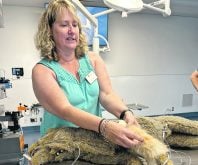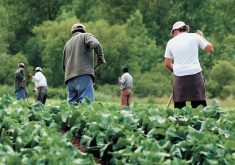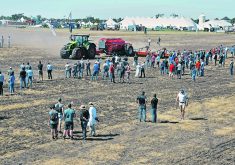COVID-19 has affected workers at Cargill’s meat-packing plant in High River, Alta., the scene of an outbreak in 2020 that was the largest in North America.
“The facility remains operational, though at a slightly reduced capacity to its typical pandemic output,” the company said in a statement Jan. 10.
“Safety measures at the facility, including temperature testing, enhanced cleaning and sanitizing, face coverings, screening between employee stations, prohibiting visitors, adopting social distancing practices where possible and staggered breaks have been in place since the beginning of the pandemic and remain in place now.”
Read Also

New coal mine proposal met with old concerns
A smaller version of the previously rejected Grassy Mountain coal mine project in Crowsnest Pass is back on the table, and the Livingstone Landowners Group continues to voice concerns about the environmental risks.
There were at least 44 active cases involving workers at the plant, Scott Payne of the United Food and Commercial Workers Canada Union Local 401 said in an email Jan. 10. However, he was unable to provide further details.
Cargill did not state when or where the infections occurred.
“Like everyone, we are seeing cases in our facilities, including High River, ebb and flow as communities work to manage the spread of the Omicron variant of COVID-19.”
At least 950 workers at the High River plant were infected and two died following an outbreak in 2020 that forced the facility to close for two weeks.
However, the facility currently has an employee vaccination rate of more than 84 percent, said Cargill. Besides helping host two vaccine clinics, the company added it is encouraging booster shots.
However, in a letter Jan. 7 sent to all employers including Cargill, union president Thomas Hesse said he was “deeply concerned about the safety of our members” due to the Omicron variant.
“I fear we are standing at the precipice of yet another devastating tragedy associated with this pandemic.”
It asked if measures had been conducted that included independent ventilation and air quality assessments, along with providing masks that meet the threat of the Omicron variant and making rapid testing available to workers to detect and mitigate outbreaks.
It also asked if employers had adjusted their approach to sick pay and absences to ensure workers can comfortably stay home without loss of income if they are symptomatic. Payne said the union had not received a reply from Cargill as of Jan. 10.
Employees at the High River plant recently approved a new contract that included a 21-percent wage increase over the life of the agreement and a $1,000 COVID bonus, averting a potential strike or lockout Dec. 6 that would have significantly disrupted the Canadian beef industry.
However, the union has said its fight to change the meat-packing industry isn’t over. Payne said Jan. 10 the union is in contract negotiations with JBS Foods at its plant in Brooks, Alta.
About 70 percent of the beef sold in Canada comes from that plant and Cargill’s facility.


















